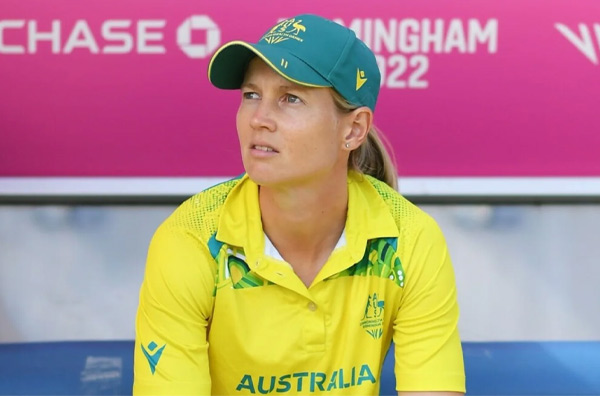Meg Lanning’s journey in cricket has been nothing short of legendary. As one of the most successful captains in the sport’s history, she guided Australia to new heights, displaying both skill and a steely resolve that kept her at the top of the game for over a decade.

Lanning’s record as captain of Australia includes five ICC titles—T20 World Cups in 2014, 2018, 2020, and 2023, the ODI World Cup in 2022—and a gold medal at the 2022 Commonwealth Games in Birmingham. Her leadership has shaped one of the most formidable teams in women’s cricket.
But behind the accolades and her composed demeanor was a more complex reality: the immense pressure of sustaining excellence at such a high level. Lanning has since opened up about the physical and mental toll this responsibility took on her. Her drive to achieve was so consuming that she often pushed herself to unhealthy extremes, overtraining and under-fueling, sometimes running up to 90 kilometers in a week without adequate recovery. Now, with the burden of captaincy lifted, she is rediscovering the joy in the game, a perspective she hadn’t allowed herself to fully appreciate during her intense international career.
This season, as Lanning steps back onto the field with the Melbourne Stars in the Women’s Big Bash League, she finds a new kind of freedom. No longer obligated to lead the team or participate in pre-game rituals like the coin toss, she can focus on the game itself, free of the responsibilities that once weighed on her mind.
“What I love the most, which is silly, is that I don’t have to get my uniform on early to go do the toss. I love not having to do that,” Lanning shared. “I don’t think too much about the games these days. I’ll rock up and play, and once I’m in the zone, I want to be competitive and do well as I can. But it’s not as consuming all day, every day as it was.”
Lanning’s introspection goes beyond personal experience; she’s committed to advocating for changes in the structure of women’s cricket in Australia. In light of the national team’s recent unexpected exit from the T20 World Cup in the United Arab Emirates, she believes the sport must adapt as women’s cricket becomes more demanding, with a schedule that increasingly resembles the men’s game. She underscores the importance of downtime and balancing life outside of cricket to maintain performance.
“I was very bad at switching off,” Lanning admitted. “Even when we had days and weeks off, I didn’t really do that as well as I could have, or didn’t really know how to do it. So, I think the messaging around that needs to be as good as can be in terms of allowing people to find other things they do enjoy away from the game.
“The game is so different now; we play so much more. It’s not ‘everybody plays everything’ anymore. It’s going to have to be a bit of a shift in terms of what are the really important tournaments and series, and what does it look like for them to be ready to go, as opposed to ‘every tournament, every series everybody plays,’ which is what happens in the men’s game now.”
Reflecting on the Australian men’s team, Lanning acknowledges that while their preparation methods may appear unconventional, they prioritize mental readiness, something she believes should be embraced more broadly in women’s cricket.
“Sometimes I look at the Aussie men’s team and think they’re taking the mickey a little bit in terms of their prep, but then it’s like ‘well that actually makes sense’ because you’re trying to get them into the best headspace they can be when they need to be. It’s getting our heads a little bit around that, and not doing what we have previously.”
For Lanning, part of adapting to the new structure involves a shift in mindset: embracing growth and resilience through failure. Having been viewed for so long as an infallible athlete, she advocates for players to make their own choices, even if that means making mistakes along the way.
“Let people learn by making mistakes,” she advised. “They might go on a holiday for a week and it turns out that’s not the best prep, but how do you know until you do it? Allow them to make decisions for themselves, rather than being stuck in the structure of cricket, which can be pretty full-on sometimes.”
Lanning’s own achievements speak volumes. With a remarkable 8,352 international runs (345 in Tests, 4,602 in ODIs, and 3,405 in T20Is), including 17 centuries and 38 half-centuries, she is among the elite in the sport.
(Quotes sourced from Sydney Morning Herald)

Loves all things female cricket